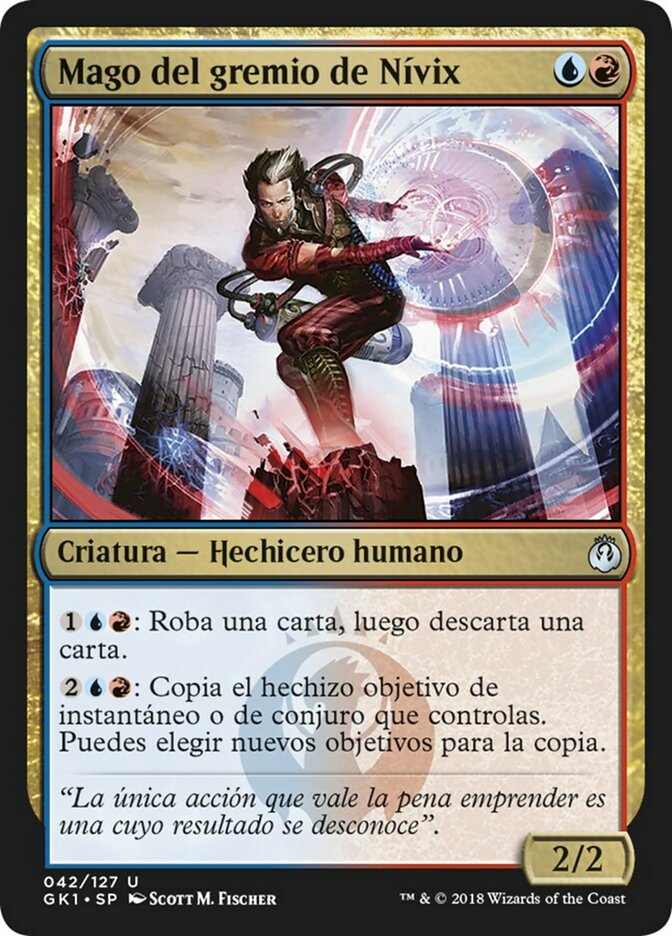
Mago del gremio de Nívix {U}{R}
Criatura — Hechicero humano
{1}{U}{R}: Roba una carta, luego descarta una carta.
{2}{U}{R}: Copia el hechizo objetivo de instantáneo o de conjuro que controlas. Puedes elegir nuevos objetivos para la copia.
“La única acción que vale la pena emprender es una cuyo resultado se desconoce”.
2/2
Watermark: Izzet
Illustrated by Scott M. Fischer
- Standard
- Not Legal
- Alchemy
- Not Legal
- Pioneer
- Legal
- Explorer
- Not Legal
- Modern
- Legal
- Historic
- Not Legal
- Legacy
- Legal
- Brawl
- Not Legal
- Vintage
- Legal
- Timeless
- Not Legal
- Commander
- Legal
- Pauper
- Not Legal
- Oathbreaker
- Legal
- Penny
- Legal
Toolbox
Buy This Card
Notes and Rules Information for Mago del gremio de Nívix:
- Only the English version of a Magic card receives Oracle updates and errata. View this card in English. (Scryfall note)
- Nivix Guildmage’s second ability can target (and copy) any instant or sorcery spell you control, not just one with targets. (2012-10-01)
- When the second ability resolves, it creates a copy of a spell. That copy is created on the stack, so it’s not “cast.” Abilities that trigger when a player casts a spell won’t trigger. The copy will then resolve like a normal spell, after players get a chance to cast spells and activate abilities. (2012-10-01)
- The copy will have the same targets as the spell it’s copying unless you choose new ones. You may change any number of the targets, including all of them or none of them. If, for one of the targets, you can’t choose a new legal target, then it remains unchanged (even if the current target is illegal). (2012-10-01)
- If the copied spell is modal (that is, it says “Choose one —” or the like), the copy will have the same mode. You can’t choose a different one. (2012-10-01)
- If the copied spell has an X whose value was determined as it was cast (like Sphinx’s Revelation does), the copy has the same value of X. (2012-10-01)
- You can’t choose to pay any additional costs for the copy. However, effects based on any additional or alternative costs that were paid for the original spell are copied as though those same costs were paid for the copy too. For example, if you copy a spell that you cast by paying its overload cost, the copy will resolve as though its overload cost had been paid as well. (2012-10-01)